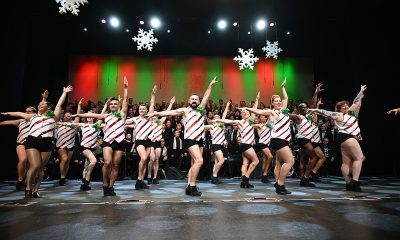Arts & Entertainment
SPRING ARTS 2018 CLASSICAL: A new spin on Durufle’s ‘Requiem’
Gay Men’s Chorus director revoices famous work
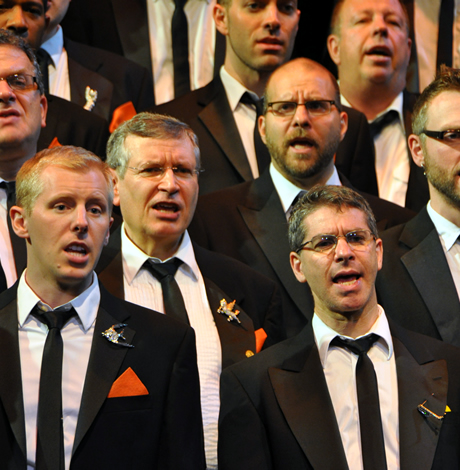
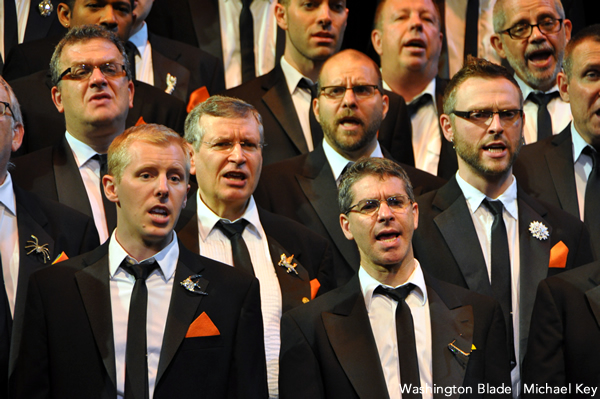
The Gay Men’s Chorus of Washington has a busy spring. Although the chorus has always interspersed classical selections in with its contemporary, more LGBT-themed material, it has done more classical major works in recent years. (Washington Blade file photo by Michael Key)
Classical music is funny when it comes to LGBT stuff — on one hand, it’s no big deal. Nobody cares if the talent is there. Yet sometimes it’s taken to such an absurd degree that it feels disingenuous. Or the artists sometimes feel talking about their personal lives will cheapen their art or dilute its impact in an arena where it’s not supposed to matter.
All that to say — comb through the classical spring concerts coming up and there’s very few LGBT themes or personnel to point to. And yet many folks active in that world say our regional orchestras, opera companies and choirs are just as healthily outfitted with gays as the rest of the city. Maybe not quite as high in number as, say, the uber-queer D.C. theater community, but not off by much. It’s anecdotal so yeah, take it with a grain of salt, but that’s what you go by when there are no hard numbers available.
The gayest classical concert this season by far comes from an unlikely source — our Gay Men’s Chorus. While their musical chops have never been questioned — they’re enjoying a rich new era under the direction of Artistic Director Thea Kano — the fact that they do so much Broadway, camp, music-with-a-message, pop covers, you name it really, folks who love the classical canon around here tend to gravitate to local choirs (and there are many) that stick to the traditional repertoire.
It’s even a “thing” in the chorus. Kano, with a chuckle, refers to the “SMQs” (i.e. “serious music queens”) in the massive choir. Those SMQs, she says, were giddy with delight when she told them one of their 2018 concerts was a new tenor/bass arrangement of Maurice Durufle’s “Requiem.” The Chorus performs it this weekend (Saturday, March 3) at 8 p.m. at the Church of the Epiphany (1317 G St., N.W.). Tickets are $60. Full details at gmcw.org.
Kano, as big an ally as it gets, was in her third year of graduate school at UCLA in 2003 working on an advanced conducting degree when she first became aware of the famous “Requiem,” or “Mass for the dead.” She and her mentoring professor were considering ideas for what she might do her dissertation on and he suggested the “Requiem.”
“He said the Durufle ‘Requiem’ and I was like, ‘The who, the what?,’” Kano says. “He said, ’Shame on you,’ and sent me home with a bunch of CDs. I put the first one in and was just moved to tears. There’s something just glorious about it.”
It did become her dissertation piece and longtime chorus accompanist Teddy Guerrant suggested she adapt it for tenor-and-bass chorus.
“He actually kept bugging me about it over the years,” Kano says.
She had contacts with the Durufle Association (the composer, who was straight, died in 1986; the “Requiem” premiered in 1947) and went to Paris last summer to do the work of actually transcribing the nine-movement, about 40-minute piece, a process she says was, yes, tedious at times, but a process akin to working on a crossword puzzle that she came to love.
Composed for soprano-alto-tenor-bass (SATB) chorus with occasional divisi, Kano adapted it for tenor 1, tenor 2, baritone and bass (TTBB) a process that in many cases was as simple as taking the soprano and alto parts down an octave, although that wasn’t feasible in all places. It’s in the same key as the original; the same orchestral and organ accompaniments Durufle wrote are being used. Soprano Breanna Sinclaire (a trans Baltimore native who’s making a name for herself as an opera soloist) will perform the fifth movement, “Pie Jesu.”
“There are some passages where the sopranos (in the original) have the melody and they’re up in the rafters but now it’s been assigned to the baritones and it’s … kind of more smushed in there so we had to really bring the other sections’ volumes down and bring the other up to make sure it’s voiced so that what is prominent stands out to the ear of the audience,” Kano says. “The first few times I heard it live in the TTBB, I was like, ‘Wow, this sounds like Durufle but different.’ We’ve been working on it about seven or eight weeks and I think it’s just glorious. The audience is in for a real treat.”
Kano was delighted that about 140 of the chorus’s 300 (give or take) members signed on for the concert (they’re not required to). She was concerned some members who enjoy the more camp/pop stuff might not be up for such a major work from the classical canon, although the chorus has in previous years done adaptations of major works such as the Faure “Requiem” and “Carmina Burana.”
Because the “Requiem” was written in a style based on Gregorian plainchant (traditionally sung by male singers), the TTBB version required no great musicological backflips. And Kano says the majesty of the piece transcends its Christian text. If it seems an odd choice for the chorus, which specializes in more rah-rah-gay-type contemporary repertoire (although they’ve always done classical works as well), Kano says it’s its own statement of equality.
“Just the fact that we’re out as an LGBT chorus standing there and singing anything, you know, the stereotype of what the classical snobby choruses can do, just shows that we can raise our voices any way we feel is appropriate for our abilities. It puts us on the map that yes, we can sing anything and hopefully the audience will agree.”
Chorus member Tim Gillham, a tenor who joined the group in 2014, had previously sung the “Requiem” in the traditional voicing and said it’s been “truly a joy” to rediscover it in Kano’s version.
“Thea’s treatment brings an added depth and warmth to the work, which is especially appropriate for a ‘Requiem,’” he says.
“It’s been a total treat to have Thea work us through the music sections and share and feel her true passion for the music,” says Ed Oseroff, a bass who’s been with the Chorus since 2000. “I hope the audience will sit back, relax and let the emotion and power of the music take them away.”
As usual, it’s a busy spring for the Chorus. Its “Make America Gay Again” concert is Saturday, March 17; small ensembles’ “Extravaganza” is Saturday, April 14 at the Barns at Wolf Trap and “Transamerica,” a show about trans issues that will also feature Sinclaire, is June 2-3. Full details at gmcw.org.

More than a dozen LGBTQ athletes won medals at the Milan Cortina Winter Olympics that ended on Sunday.
Cayla Barnes, Hilary Knight, and Alex Carpenter are LGBTQ members of the U.S. women’s hockey team that won a gold medal after they defeated Canada in overtime. Knight the day before the Feb. 19 match proposed to her girlfriend, Brittany Bowe, an Olympic speed skater.
French ice dancer Guillaume Cizeron, who is gay, and his partner Laurence Fournier Beaudry won gold. American alpine skier Breezy Johnson, who is bisexual, won gold in the women’s downhill. Amber Glenn, who identifies as bisexual and pansexual, was part of the American figure skating team that won gold in the team event.
Swiss freestyle skier Mathilde Gremaud, who is in a relationship with Vali Höll, an Austrian mountain biker, won gold in women’s freeski slopestyle.
Bruce Mouat, who is the captain of the British curling team that won a silver medal, is gay. Six members of the Canadian women’s hockey team — Emily Clark, Erin Ambrose, Emerance Maschmeyer, Brianne Jenner, Laura Stacey, and Marie-Philip Poulin — that won silver are LGBTQ.
Swedish freestyle skier Sandra Naeslund, who is a lesbian, won a bronze medal in ski cross.
Belgian speed skater Tineke den Dulk, who is bisexual, was part of her country’s mixed 2000-meter relay that won bronze. Canadian ice dancer Paul Poirier, who is gay, and his partner, Piper Gilles, won bronze.
Laura Zimmermann, who is queer, is a member of the Swiss women’s hockey team that won bronze when they defeated Sweden.
Outsports.com notes all of the LGBTQ Olympians who competed at the games and who medaled.
Theater
José Zayas brings ‘The House of Bernarda Alba’ to GALA Hispanic Theatre
Gay Spanish playwright Federico García Lorca wrote masterpiece before 1936 execution

‘The House of Bernarda Alba’
Through March 1
GALA Hispanic Theatre
3333 14th St., N.W.
$27-$52
Galatheatre.org
In Federico García Lorca’s “The House of Bernarda Alba,” now at GALA Hispanic Theatre in Columbia Heights, an impossibly oppressive domestic situation serves, in short, as an allegory for the repressive, patriarchal, and fascist atmosphere of 1930s Spain
The gay playwright completed his final and arguably best work in 1936, just months before he was executed by a right-wing firing squad. “Bernarda Alba” is set in the same year, sometime during a hot summer in rural Andalusia, the heart of “España profunda” (the deep Spain), where traditions are deeply rooted and mores seldom challenged.
At Bernarda’s house, the atmosphere, already stifling, is about to get worse.
On the day of her second husband’s funeral, Bernarda Alba (superbly played by Luz Nicolás), a sixtyish woman accustomed to calling the shots, gathers her five unmarried daughters (ages ranging from 20 to 39) and matter-of-factly explain what’s to happen next.
She says, “Through the eight years of mourning not a breeze shall enter this house. Consider the doors and windows as sealed with bricks. That’s how it was in my father’s house and my grandfather’s. Meanwhile, you can embroider your trousseaux.”
It’s not an altogether sunny plan. While Angustias (María del Mar Rodríguez), Bernarda’s daughter from her first marriage and heiress to a fortune, is betrothed to a much younger catch, Pepe el Romano, who never appears on stage, the remaining four stand little chance of finding suitable matches. Not only are they dowry-less, but no men, eligible or otherwise, are admitted into their mother’s house.
Lorca is a literary hero known for his mastery of both lyrical poetry and visceral drama; still, “Bernarda Alba’s” plotline might suit a telenovela. Despotic mother heads a house of adult daughters. Said daughters are churning with passions and jealousies. When sneaky Martirio (Giselle Gonzáles) steals the photo of Angustias’s fiancé all heck kicks off. Lots of infighting and high drama ensue. There’s even a batty grandmother (Alicia Kaplan) in the wings for bleak comic relief.
At GALA, the modern classic is lovingly staged by José Zayas. The New York-based out director has assembled a committed cast and creative team who’ve manifested an extraordinarily timely 90-minute production performed in Spanish with English subtitles easily ready seen on multiple screens.
In Lorca’s stage directions, he describes the set as an inner room in Bernarda’s house; it’s bright white with thick walls. At GALA, scenic designer Grisele Gonzáles continues the one-color theme with bright red walls and floor and closed doors. There are no props.
In the airless room, women sit on straight back chairs sewing. They think of men, still. Two are fixated on their oldest siter’s hunky betrothed. Only Magdelena (Anna Malavé), the one sister who truly mourns their dead father, has given up on marriage entirely.
The severity of the place is alleviated by men’s distant voices, Koki Lortkipanidze’s original music, movement (stir crazy sisters scratching walls), and even a precisely executed beatdown choreographed by Lorraine Ressegger-Slone.
In a short yet telling scene, Bernarda’s youngest daughter Adela (María Coral) proves she will serve as the rebellion to Bernarda’s dictatorship. Reluctant to mourn, Adela admires her reflection. She has traded her black togs for a seafoam green party dress. It’s a dreamily lit moment (compliments of lighting designer Hailey Laroe.)
But there’s no mistaking who’s in charge. Dressed in unflattering widow weeds, her face locked in a disapproving sneer, Bernarda rules with an iron fist; and despite ramrod posture, she uses a cane (though mostly as a weapon during one of her frequent rages.)
Bernarda’s countenance softens only when sharing a bit of gossip with Poncia, her longtime servant convincingly played by Evelyn Rosario Vega.
Nicolás has appeared in “Bernarda Alba” before, first as daughter Martirio in Madrid, and recently as the mother in an English language production at Carnegie Melon University in Pittsburgh. And now in D.C. where her Bernarda is dictatorial, prone to violence, and scarily pro-patriarchy.
Words and phrases echo throughout Lorca’s play, all likely to signal a tightening oppression: “mourning,” “my house,” “honor,” and finally “silence.”
As a queer artist sympathetic to left wing causes, Lorca knew of what he wrote. He understood the provinces, the dangers of tyranny, and the dimming of democracy. Early in Spain’s Civil War, Lorca was dragged to the the woods and murdered by Franco’s thugs. Presumably buried in a mass grave, his remains have never been found.
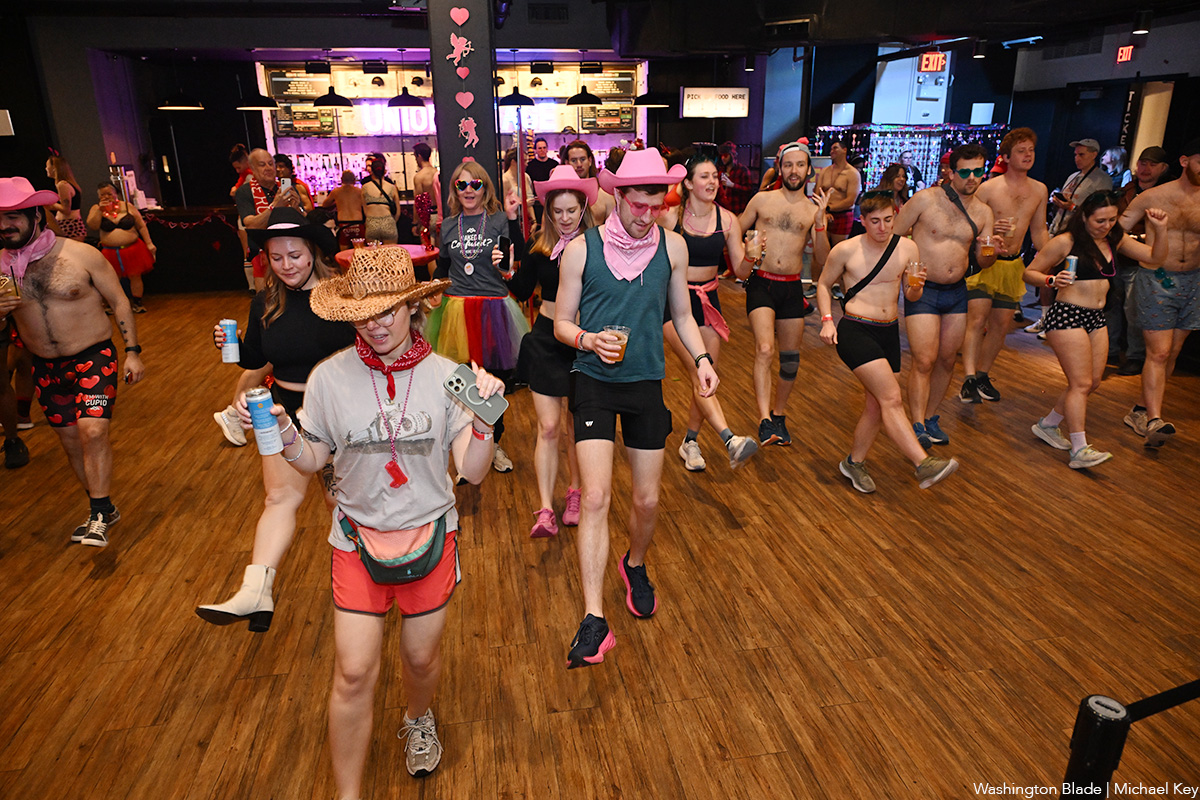
Cupid’s Undie Run, an annual fundraiser for neurofibromatosis (NF) research, was held at Union Stage and at The Wharf DC on Saturday, Feb. 21.
(Washington Blade photos by Michael Key)


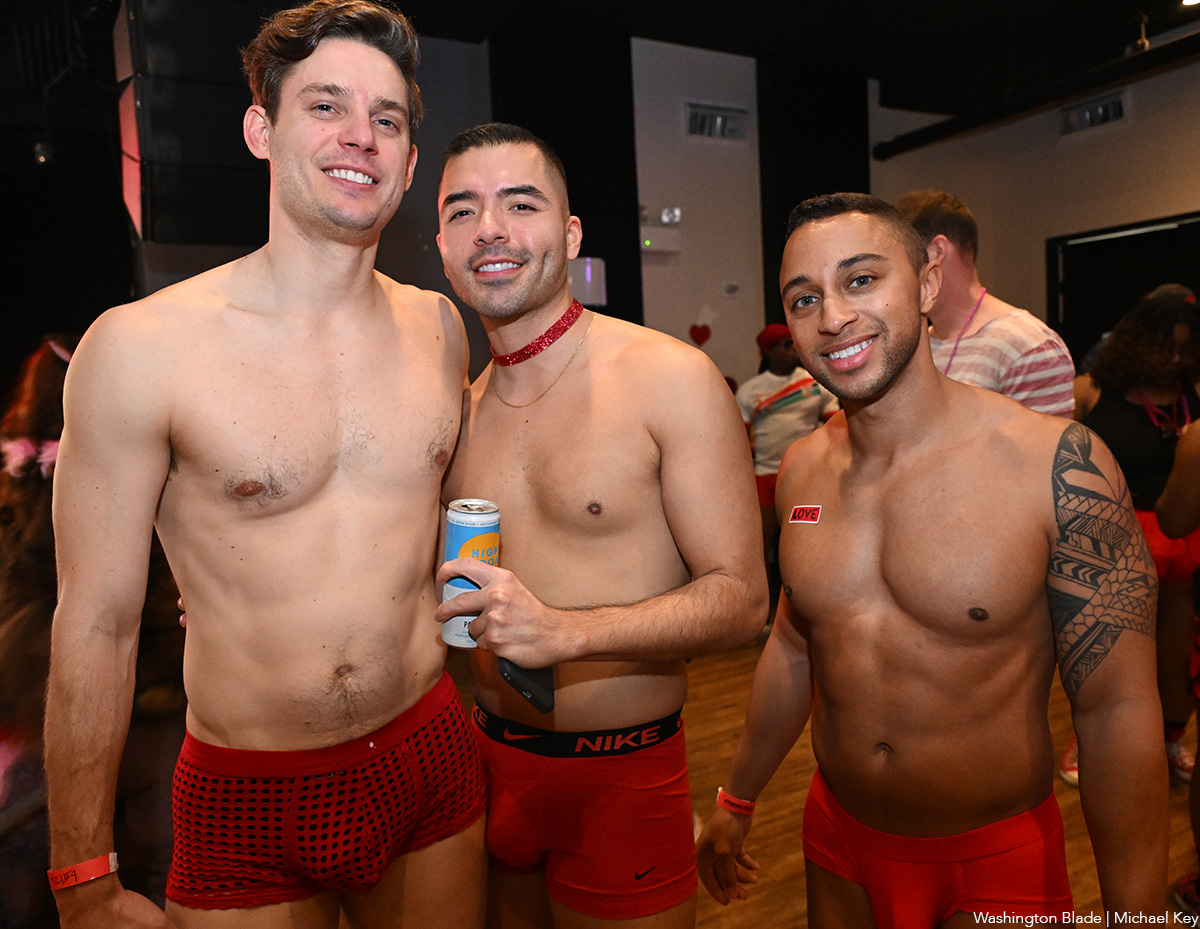





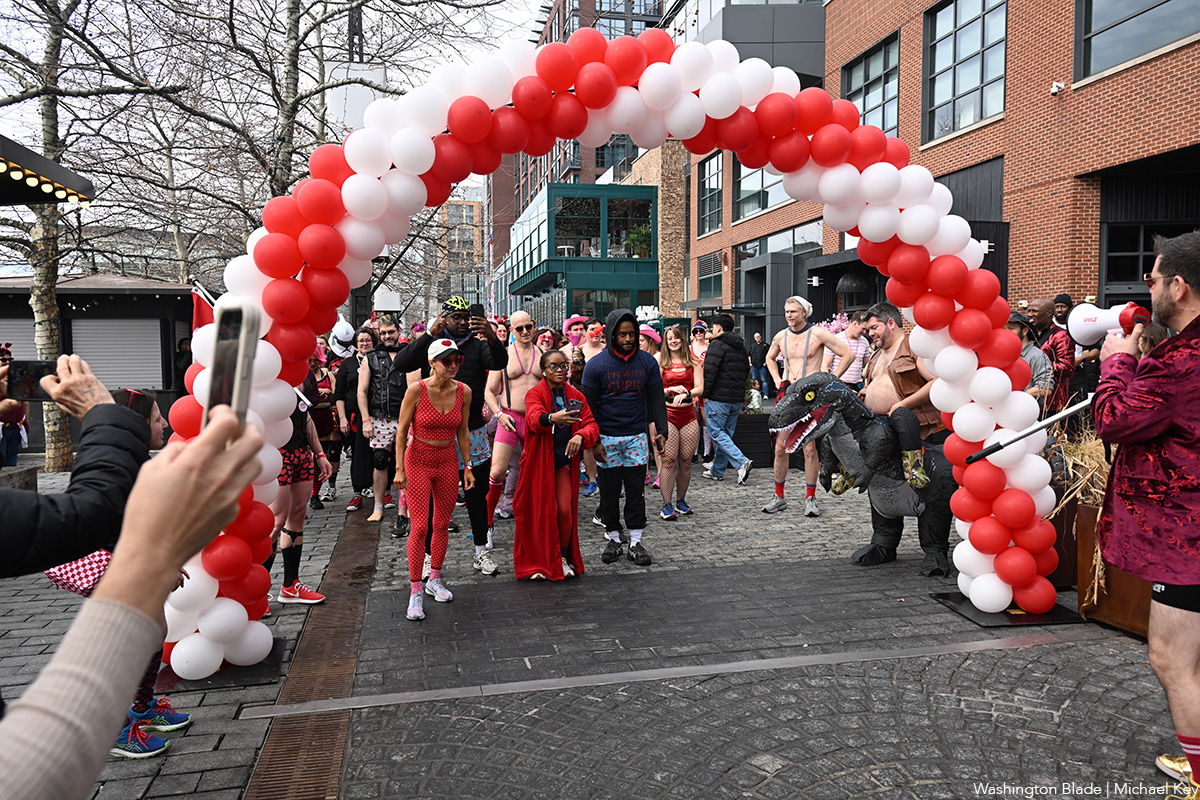
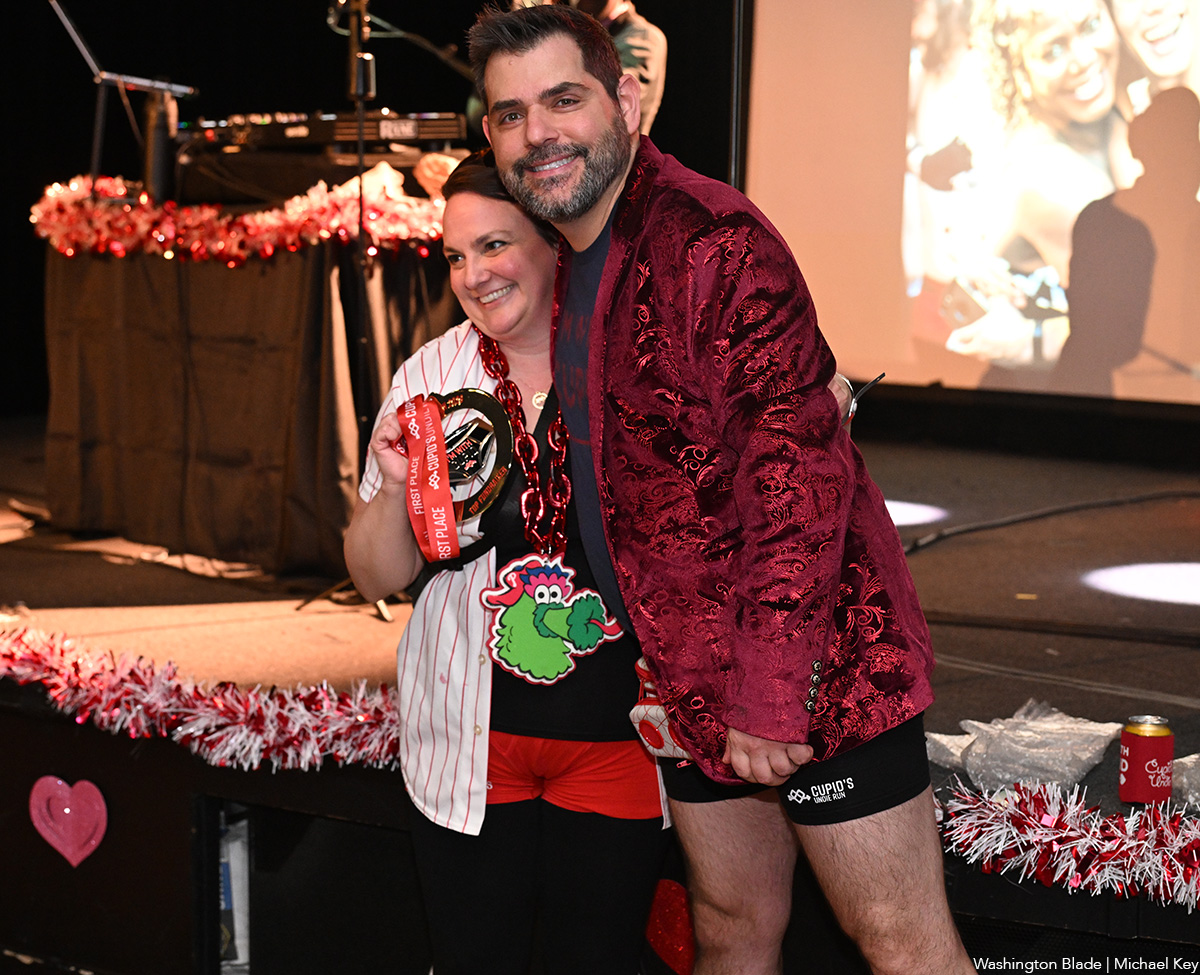
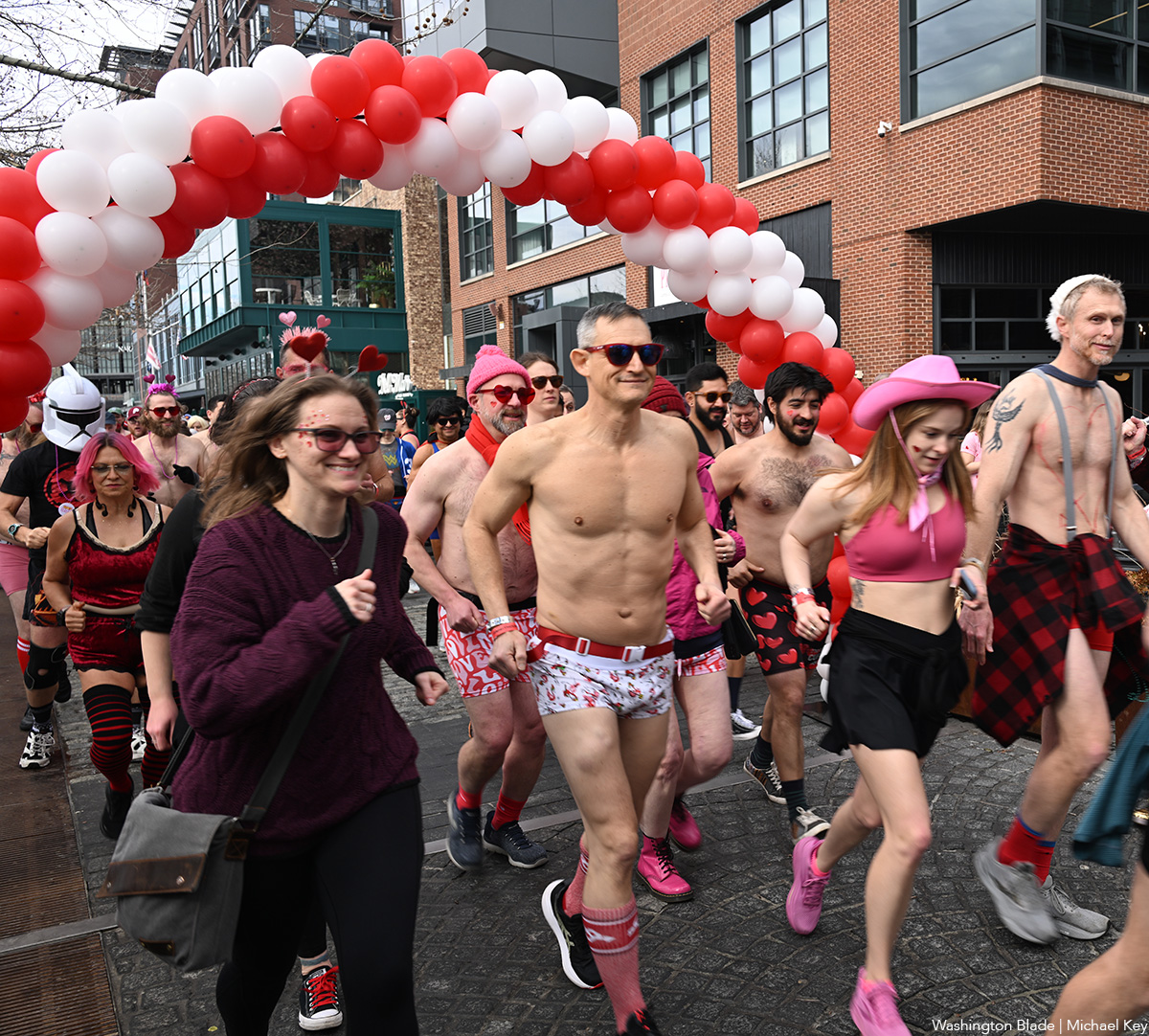
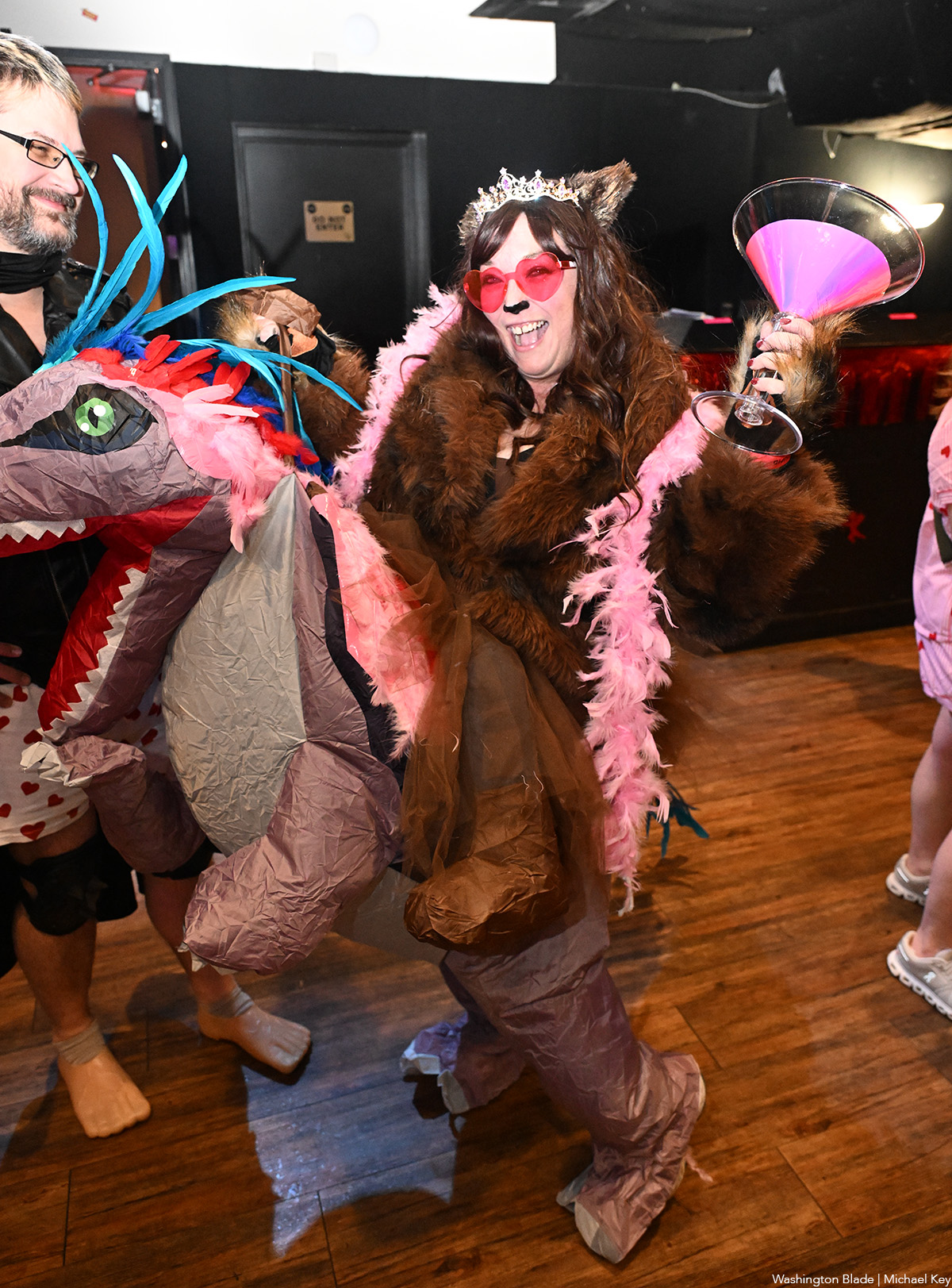
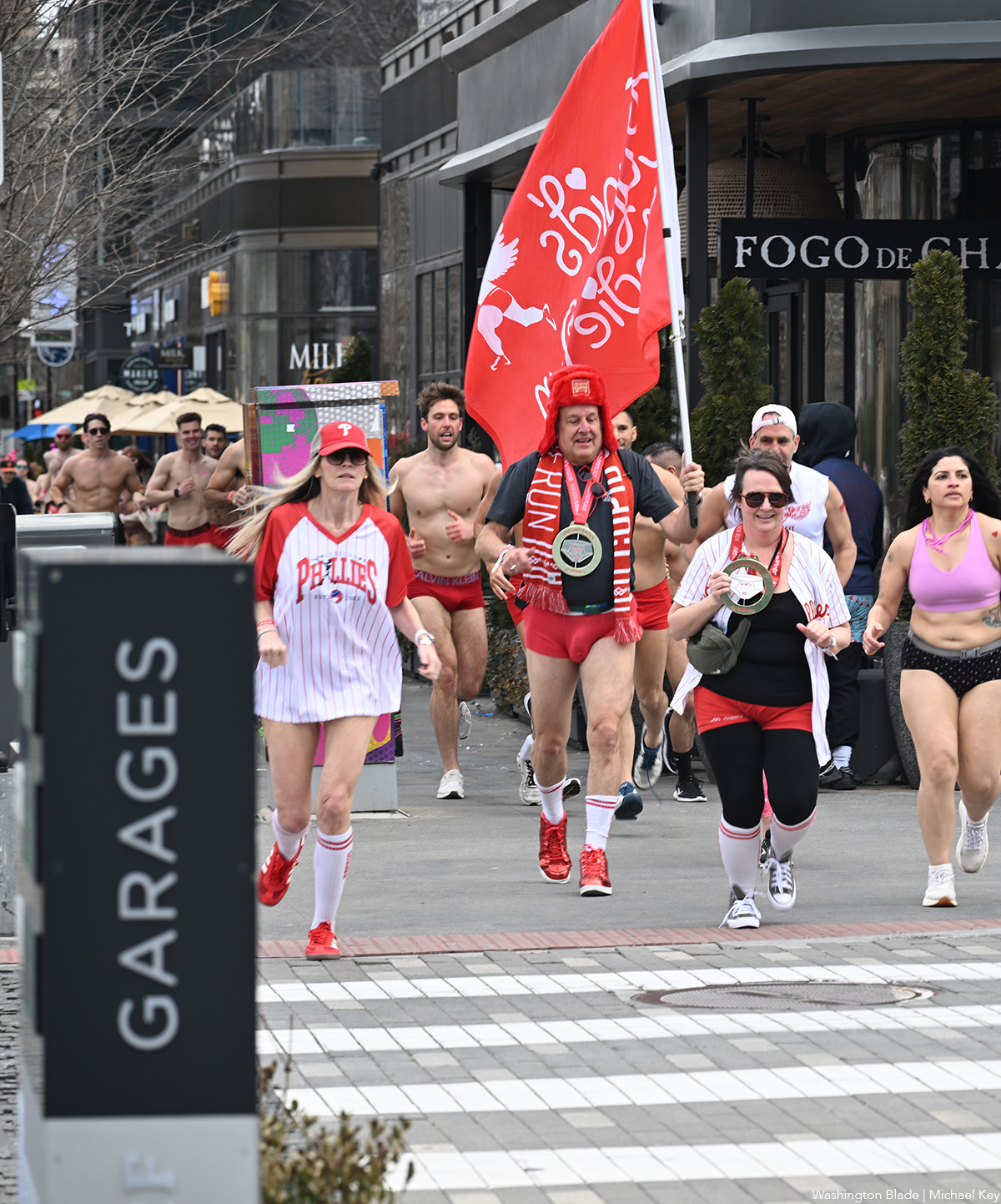
-

 U.S. Military/Pentagon5 days ago
U.S. Military/Pentagon5 days ago4th Circuit rules against discharged service members with HIV
-

 Photos5 days ago
Photos5 days agoPHOTOS: Clash
-

 Movies4 days ago
Movies4 days agoRadical reframing highlights the ‘Wuthering’ highs and lows of a classic
-

 District of Columbia3 days ago
District of Columbia3 days agoJudge rescinds order against activist in Capital Pride lawsuit





